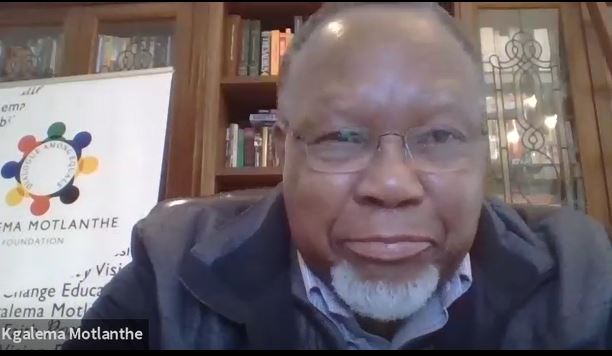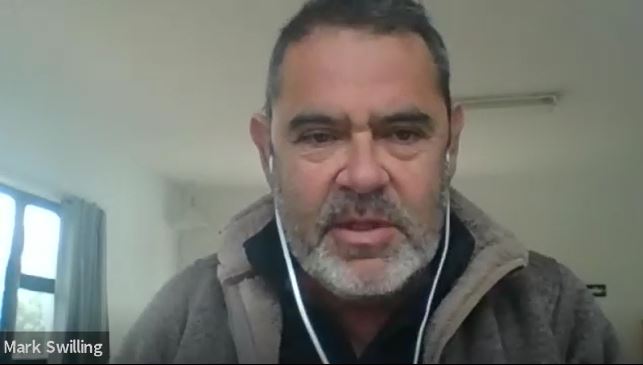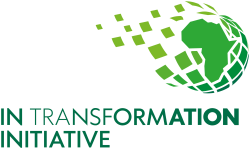The stability of the South African (SA) State is being affected by an approach that was taken to transform the apartheid state into a democracy. There was a broad consensus that deployment informed by political considerations would be part of the endeavour to reform the state. This approach has, however, been interpreted as though it is a permanent fixture. Since, the National Development Plan (NDP) emphasises the need for a capable State, it is a key consideration in the SA political spheres.
These were some of the opening remarks of former President Kgalema Motlanthe during a dialogue discussion hosted by the Kgalema Motlanthe Foundation, In Transformation Initiative (ITI), Hanns Seidel Foundation, Democracy Works and Gordon Institute of Business Science (GIBS). The discussion, held on 31 August 2020, centred on the topic of “Building a capable State”.

Goals of the discussion as outlined by Prof Binedell included understanding what triggers state reform, mapping out what political will exists to do that and thirdly, what administrative arrangements need to be reconsidered in terms of building capacity and restructuring.
During his introductory remarks, Binedell emphasised that “this is a serious conversation about a serious crisis”. He stated that much of the restlessness seen in the country is due to non-deliverance from the State at local, provincial and national level.
He further stressed that “policy does not seem to be executed” and that SA has a large and expensive State, which does not seem to be increasing its productivity. “[The State’s] administrative structures are outdated, it is not accommodating towards the Fourth Industrial Revolution, and there are questions of corruption and an unethical system,” Binedell stated.
Mavuso Msimang, outlined some of the core functions of the State. These included mobilization of its resources to meet its developmental challenges and manage long-term social and economic change and economic development, education, and innovation.
In his analysis Msimang highlighted some of the constraints underlying the functioning of a state. His conclusion in this regard was that “a capable state cannot operate freely and autonomously if it is not freed from the narrow ideological interests of the parties at play”.
Msimang further propounded on the vagaries of corruption within the South African State, which he said was akin to a “pandemic” in the SA State. He emphasised the importance of talking about factionalism and corruption as separate matters because the solutions are different. He also expressed the need for firm leadership and a strong NPA in building a capable state.
Prof Mark Swilling started off his opening remarks by stating that “we cannot talk about rebuilding the state without understanding the political coalition that is going to drive it”. In essence, he questioned whether the African National Congress (ANC) could continue to be a viable political and organisational linchpin for the kind of political coalition that needs to drive state rebuilding.

Lastly, Swilling gave three strategies when thinking about rebuilding state institutions. The first of these is the cynical strategy, which would entail thinking about State institutions as “beyond salvaging”. Under this strategy, he indicated that “the best option is to employ austerity to cover the asphyxiation”.
Secondly, he spoke about the strategy of resurrection. This is premised on the idea that a new cadre of people can be trained, like in the 1990s, to enter the State with new ideals and turn these institutions around. Finally, he spoke about parallelism, which is the idea of building a new generation of institutions in parallel to old ones that will take a long time to transform.
In the open discussion that ensued participants, most of whom have extensive experience in the civil society, academia, public and private sector, had the opportunity to proffer their views on the matter.
One of the main points emanating from the discussion is the importance of understanding the nature of the modern state, and building a capable state from that. In order to do this, the following factors were suggested and accepted as important in taking into consideration: the political environment within which the reform must take place; the sourcing of the skills and resources required to build a capable state; and clearly determining who will be driving the reform process.
It was also emphasised that the State has been reduced from a developmental state to a delivery state and that SA should find ways to change this through creating pathways toward motivating policy changes in order to build a capable state.
The discussion further considered how to establish a capable state amidst severe hostility and lack of trust towards government regardless of the political party in power, a lack of trust within and between government departments, a lack of confidence in oversight bodies and the lack of accountability of the State.
Another important point raised, was to focus on youth representation and developing the younger generation of political leaders. This point coincided with the idea that the authorising environment and the bottom up mobilising environment must find each other in order to build a capable state.
During his closing remarks, Msimang said that it “is important to talk about factionalism and corruption, because the solutions are different”. He explained that dealing with a faction requires strong and firm leadership and a strong National Prosecuting Authority (NPA) to help build a capable state.
He further emphasised that the cost of government has to be looked at. “This needs to change even if it means having to change the constitution, there is too much wastage going about,” he said. Lastly he stated that “we need to make the electorate respond to good and bad governance” and that individuals “who do not deliver”, need to be removed.
In his concluding remarks Roelf Meyer stated that “in a way, we should take this [building a capable state] forward in accepting that not all is lost” and he emphasised that SA, especially the youth, have to look at what can be revitalised in building the capacity of the state in order to see how things can further progress.Podcast recordings of the welcoming remarks during the third dialogue discussion will be available on ITI’s Anchor website. Click here to access it.

